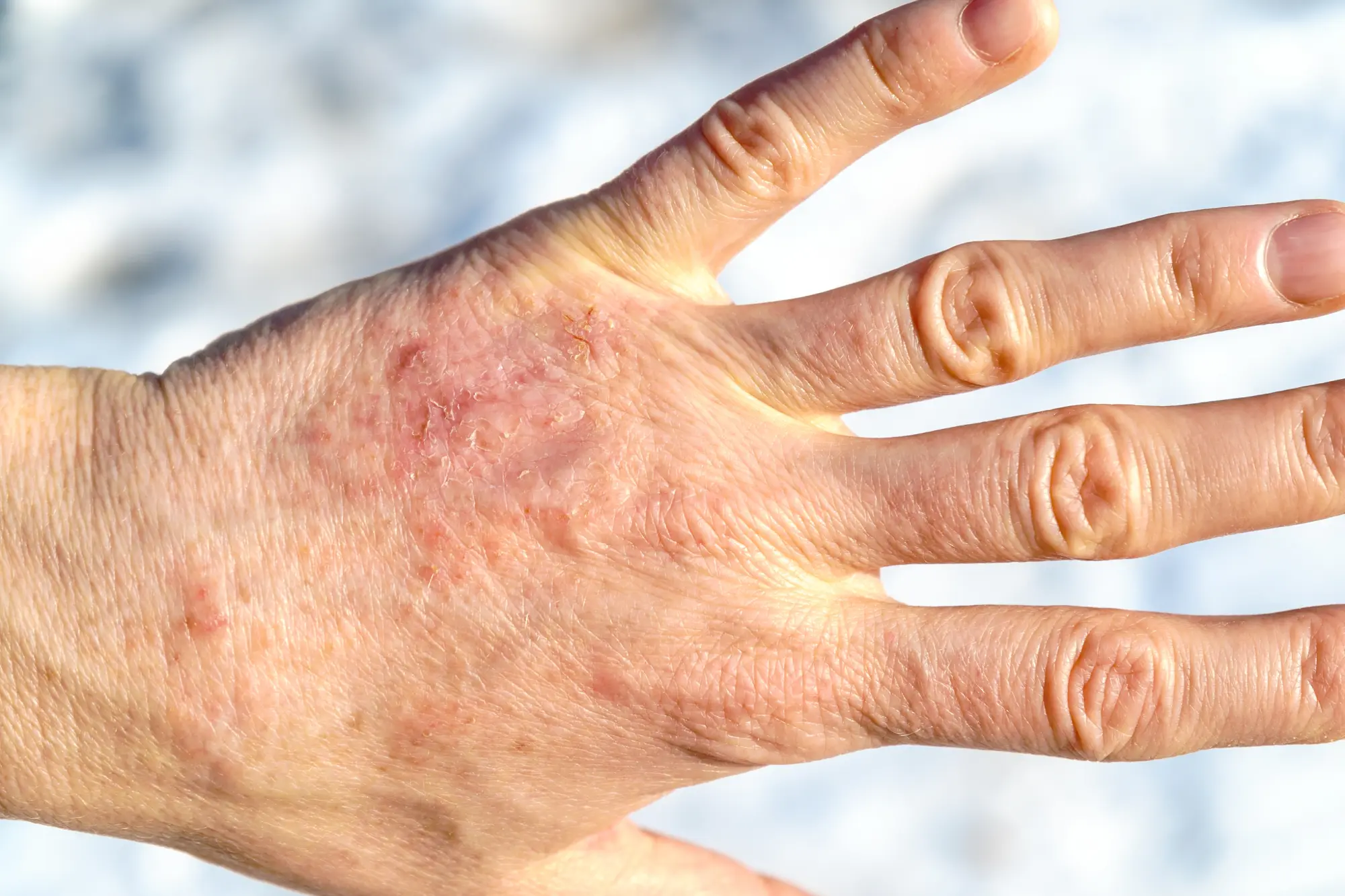
Eczema Treatment
- Home
- Eczema Treatment
Eczema Treatment in Terre Haute & Vincennes
Relief for Chronic Itching and Irritated Skin
Eczema affects more than 30 million Americans, causing dry, itchy, and inflamed skin that can be difficult to manage. If you're struggling with eczema, you’re not alone. At Biltmore Dermatology, we specialize in personalized treatment plans to help reduce flare-ups, soothe irritation, and restore comfort to your skin.
What Is Eczema?
Eczema, also called atopic dermatitis, is a chronic skin condition that causes itching, inflammation, and dryness. It often appears in flare-ups, where symptoms worsen before improving again.
Some cases are mild and manageable with moisturizers and avoiding triggers, while others require medical treatment to control symptoms. Without the right care, flare-ups can become persistent and frustrating.
Although eczema may look concerning, it is not contagious and cannot be spread from person to person.
Common Areas Affected by Eczema:
- Face, including the cheeks, forehead, and around the eyes
- Hands, wrists, and fingers
- Elbows, knees, and skin folds
- Scalp and neck
Eczema is often linked to asthma, allergies, and sensitive skin, making it important to identify triggers and follow a customized treatment plan.
Signs and Symptoms of Eczema
The most common symptom of eczema is intense itching, which can lead to scratching, skin damage, and even infection. Symptoms may include:
- Dry, rough, or cracked skin
- Redness or darkened patches of skin
- Inflammation and swelling
- Thickened or scaly areas
- Oozing or crusting from broken skin
- Sensitivity to common products like soaps and detergents
Some types of eczema, such as dyshidrotic eczema, can cause deep, painful blisters on the hands and feet. If eczema is persistent, worsening, or interfering with daily life, seeking professional care can help.
What Causes Eczema?
Eczema is believed to be caused by a combination of genetics, immune system responses, and environmental factors. While its root cause is still being studied, certain triggers are known to make symptoms worse, including:
- Allergens – Pollen, pet dander, mold, and dust mites can trigger flare-ups.
- Dry skin – Lack of moisture weakens the skin barrier, making irritation more likely.
- Temperature changes – Hot weather and sweating or cold air and dry heat can aggravate eczema.
- Harsh skincare products – Soaps, fragrances, detergents, and disinfectants can irritate.
- Stress and emotional triggers – High-stress levels can make eczema flare up or worsen.
Eczema triggers vary from person to person, so identifying your unique triggers is key to long-term control.
Eczema Treatment Options
While eczema has no cure, the right treatment plan can significantly reduce symptoms and help prevent flare-ups. This typically includes a combination of prescription treatments, skincare modifications, and lifestyle adjustments.
Common Treatment Options:
- Topical corticosteroids – Prescription creams or ointments to reduce inflammation and itching.
- Oral medications – Antihistamines and other prescription treatments to control flare-ups.
- Biologic therapies – Newer treatments like Rinvoq for severe cases of eczema.
- Moisturizers and barrier creams – Hydrating products to strengthen the skin and reduce irritation.
- Lifestyle and environmental adjustments – Avoiding triggers and using gentle skincare products.
Our board-certified provider at Biltmore Dermatology will develop a personalized treatment plan tailored to your skin’s needs, helping you achieve better long-term control of eczema symptoms.
Managing Eczema
Managing eczema requires more than just treatment—it takes daily care and the right habits to prevent flare-ups. These strategies can help keep symptoms under control:
- Keep skin hydrated with fragrance-free moisturizers
- Avoid harsh soaps, detergents, and skincare products
- Wear loose, breathable clothing to prevent irritation
- Manage stress levels through relaxation techniques
- Take short, lukewarm showers instead of long, hot ones
If eczema becomes difficult to manage, seeking professional treatment can help restore comfort and reduce flare-ups.
Frequently Asked Questions About Eczema
Schedule a Consultation
Eczema doesn’t have to disrupt your life. With the right care, flare-ups can be controlled, and irritated skin can heal. At Biltmore Dermatology, we create personalized treatment plans to help you get lasting relief.
Book an Appointment: Call our office, contact us online, or visit us for a walk-in consultation at our Terre Haute or Vincennes location.